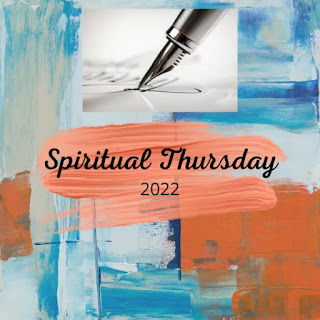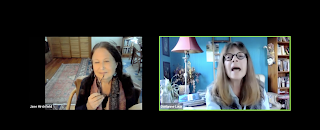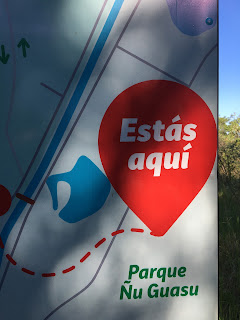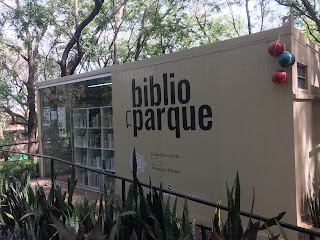I've had this poem open on my desktop for a little while, and every time I read it, I see new things in it. So much so, that it's hard to pick out a few lines.
Diving into the Wreck
by Adrienne Rich
First having read the book of myths,
and loaded the camera,
and checked the edge of the knife-blade,
I put on
the body-armor of black rubber
the absurd flippers
the grave and awkward mask.
I am having to do this
not like Cousteau with his
assiduous team
aboard the sun-flooded schooner
but here alone.
There is a ladder.
The ladder is always there
hanging innocently
close to the side of the schooner.
We know what it is for,
we who have used it.
Otherwise
it is a piece of maritime floss
some sundry equipment.
I go down.
Rung after rung and still
the oxygen immerses me
the blue light
the clear atoms
of our human air.
I go down.
My flippers cripple me,
I crawl like an insect down the ladder
and there is no one
to tell me when the ocean
will begin.
First the air is blue and then
it is bluer and then green and then
black I am blacking out and yet
my mask is powerful
it pumps my blood with power
the sea is another story
the sea is not a question of power
I have to learn alone
to turn my body without force
in the deep element.
And now: it is easy to forget
what I came for
among so many who have always
lived here
swaying their crenellated fans
between the reefs
and besides
you breathe differently down here.
I came to explore the wreck.
The words are purposes.
The words are maps.
I came to see the damage that was done
and the treasures that prevail.
I stroke the beam of my lamp
slowly along the flank
of something more permanent
than fish or weed
the thing I came for:
the wreck and not the story of the wreck
the thing itself and not the myth
the drowned face always staring
toward the sun
the evidence of damage
worn by salt and sway into this threadbare beauty
the ribs of the disaster
curving their assertion
among the tentative haunters.
This is the place.
And I am here, the mermaid whose dark hair
streams black, the merman in his armored body.
We circle silently
about the wreck
we dive into the hold.
I am she: I am he
whose drowned face sleeps with open eyes
whose breasts still bear the stress
whose silver, copper, vermeil cargo lies
obscurely inside barrels
half-wedged and left to rot
we are the half-destroyed instruments
that once held to a course
the water-eaten log
the fouled compass
We are, I am, you are
by cowardice or courage
the one who find our way
back to this scene
carrying a knife, a camera
a book of myths
in which
our names do not appear.
April 1 Irene at Live Your Poem
2 Donna Smith at Mainely Write
3 Catherine Flynn at Reading to the Core
4 Mary Lee at A(nother) Year of Reading
5 Buffy at Buffy Silverman
6 Molly at Nix the Comfort Zone
7 Kim Johnson at Common Threads
8 Rose Cappelli at Imagine the Possibilities
9 Carol Varsalona at Beyond Literacy Link
10 Linda Baie at Teacher Dance
11 Janet Fagel at Reflections on the Teche
12 Jone at Jone Rush MacCulloch
13 Karin Fisher-Golton at Still in Awe
14 Denise Krebs at Dare to Care
15 Carol Labuzzetta @ The Apples in my Orchard
16 Heidi Mordhorst at My Juicy Little Universe
17 Ruth at There is no such thing as a God-forsaken Town
18 Patricia at Reverie
19 Christie at Wondering and Wandering
20 Robyn Hood Black at Life on the Deckle Edge
21 Kevin at Dog Trax
22 Margaret at Reflections on the Teche
23 Leigh Anne at A Day in the Life
24 Marcie Atkins
25 Marilyn Garcia
26 JoAnn Early Macken
27 Janice at Salt City Verse
28 Tabatha at The Opposite of Indifference
29 Karen Eastlund at Karen’s Got a Blog
30 Michelle Kogan Painting, Illustration, & Writing





















